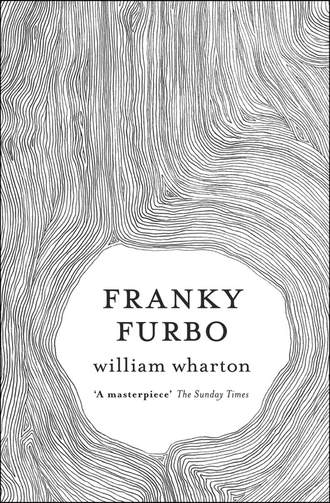
Полная версия
Franky Furbo
Camilla is living on one of the northern islands of Japan. She’s an oceanographer and is concerned about the whales and dolphins, their survival. She keeps trying to dissuade the Japanese from killing whales and dolphins for food. Boy, our kids sure have taken up crazy things for a living. It’s hard to believe it all started here in this little house.
But then, I should talk; I’m probably the wackiest one around.
Could be I’m actually not all here, a true loon, the way the army psychiatrists insisted. I do know I can’t get myself to stare over that edge to the black hole of existence or nonexistence without help. I really like to pretend, to make believe, to live inside stories, stories I hear or read or make up, even the stories I write for a living. Also, I’m a sucker for all the group fantasies man’s created – Christmas, Easter, Halloween, birthday celebrations. All those things buffer me, give me an illusion of continuity. I need something I can hold on to.
Also, the entire Franky Furbo saga, and what I believe about him, is a part of my life, my reasons for living. I just can’t consider that he doesn’t exist, that I make him up myself. He means too much to me. The deep purples of despair surround me right now, and only because Billy said he didn’t believe in Franky. I don’t know how to handle it. I smell the smells of dirty feet, moldy sheep, feel the slippage of entropy. I’m not ready for this unwanted clarity of perception.
After breakfast, Billy goes upstairs to the schoolroom. One of Caroline’s theories of teaching is that children must learn to teach themselves. She teaches them so they read with personal joy and pleasure, then gives them books that will interest them and at the same time instruct. After they’ve read the books – whether they be novels, biographies, algebra, chemistry, physics, geography, any subject – she’ll sit with them and discuss what they’ve read. When something is particularly difficult, she’ll explain or, better yet, help them explain it to themselves. I’ve sat in when she’s been teaching, and sometimes I just leave the door open from where I’m working, opening onto her classroom, and I always learn something I didn’t know.
When we were at UCLA together, I knew she was an outstanding student, but I didn’t know how much more she was learning than I was. She loves to teach too, and our children love her as teacher almost as much as they love her as Mother.
So, we’re left alone. I’m drying the dishes and stacking them in the closet. I’m waiting for her to say something about the terrible ending to the Franky Furbo story I told, but she’s holding back. It’s almost as if she’s thinking of something else and doesn’t want to be disturbed. I’m feeling terribly depressed and want to talk with her, but I don’t want to interfere with her thoughts. I find I’ve started whistling; it’s that damned six-pence song. That’s always a bad sign for me. Caroline notices and looks over. I stop. I need to talk.
‘All right. I’m sorry. I shouldn’t’ve made up that ending. It was a cruel thing to do.’
‘Yes it was. He’s getting too old for you to insist he believe in all those things; he’s growing up. I think he’s going along with Santa this year because he knows how much you enjoy it, but this will be his last year. Billy is a very nice person.’
I know I’m supposed to feel bad here for what I did, and I do. I really do, with one part of me.
‘Caroline, I know I shouldn’t have made up that whole bit about the fire and Franky being killed and all that, but Billy hit me where it really hurts. He said he didn’t believe in Franky Furbo. I guess I was striking back.’
‘He was only being honest, William. You can’t punish him for that. He can’t go on forever believing in a fox who’s more intelligent than human beings, who can fly, who can make himself big or small, turn himself into a man or fox, can transmigrate his body from one place to another, transmute matter – all the rest. You can’t ask him to grow up believing something like that. It isn’t right. You should be proud he could come right out and tell you.’
‘Yes I know. But the trouble is, there really is a Franky Furbo. You know that. It can’t hurt him too much believing in something that really is, even if he can’t see him or know him himself, can it?’
She looks at me, she looks into my eyes in that kind yet veiled way with which she can seem to see into my deepest parts.
‘William, we both know, in one way, there really is a Santa Claus too, but in the real world, there isn’t. You can’t ask Billy to live with you in your fantasies; it isn’t fair. The children need to know there’s a place where they can draw a line between what is and what isn’t, what can be and what can’t. It’s only natural.’
‘You’re not listening, Caroline. There really is a Franky Furbo. Let us not forget that. We’re not talking about Santa Claus or the Easter Bunny or the Little People now. We’re talking about Franky Furbo! If he isn’t true, then nothing is true.’
Caroline looks at me again. In over thirty-five years, we haven’t talked much in this area. I think we’ve been afraid of it, what it means, could mean to our relationship, to the way we live.
‘You don’t really believe that, William. I know you like to play with thoughts, the nature of reality and all that kind of thinking, but this is serious. You know, deep down in your heart, there’s no Franky Furbo. There couldn’t be. It’s just too ridiculous.’
I stare back at her. I could leave it here. We mean so much to each other and it all happened so long ago, but I can’t stop myself.
‘Caroline, you do know I had a Section Eight discharge from the army. I never lied to you about that now, did I?’
‘Of course, William dear; I know that. But it never mattered to me. I love you. I loved you then and I love you now.’
‘But when I told you about my Section Eight, I also told you about Franky Furbo. I told you all about it then, when we were at the university, just after we’d met at one of those Friday night dances and knew right away we were in love. I told you about it that night. I felt you were the first person I’d ever met I could tell about Franky who wouldn’t laugh or get scared or run away from me. It was the year I was released from the hospital back in Kentucky. This is true, isn’t it? You did believe me, didn’t you?’
Caroline stares at me. She has the butter in her hand, ready to slide it into the refrigerator.
‘It was such a long time ago, William. Everything was mixed up after the war and you were so sad. And yet you had a fascinating way about your life, driving that impossible black, yellow and red cut-down jeep with the birdcages built into the back, living in a tent up there on a hill in Topanga Canyon. And then building your private nest in the attic of Moore Hall and living there.
‘I would have believed anything you told me; even if I didn’t believe, I’d have pretended I did. I wasn’t about to let you get away. I was so young. You can’t imagine what it is for a young girl when she meets someone like you and knows she’s in love – it’s a special kind of desperation.’
‘Then you didn’t believe me and you don’t now. You’ve only humored me along. Is that it?’
‘It’s not so simple, William. I knew you’d had a terrible time with the war and had been hurt deeply. I guess I felt sorry for you. But more than that, I wanted to be involved in your life, the life you told me you were going to lead. It’s possible I could have believed you with a part of my mind, an important part, the part related to my heart. Don’t you understand – I wanted to believe so much I maybe actually did believe. I never felt I was lying to you.’
She pulls the plug to let the water out of the sink. I dry the frying pan and hang it on the wall. I’m feeling empty inside, cold, lost, the way I used to feel in the hospital when no one would believe me and they’d ask the same questions over and over. Now, my own wife and youngest child don’t believe in me.
‘I’m not trying to blame you, Caroline. I understand. It’s just during all these years, I thought you believed. It helped me hold on to what I thought was the only sanity I had left. Except for the army psychiatrists, I never talked to anyone about it. Then I started telling the children stories, some of them actual stories Franky told me, some I made up over the years to amuse them. But even those made-up stories were somehow true, true in that I believed them myself.
‘You know how the doctors in the hospital put the whole Franky business down to a fantasy I’d constructed as compensation for a complete amnesia due to extreme trauma. They insisted I was only supporting a sustained delusion. That’s why they gave me the Section Eight. That’s why I still receive the fifty-percent disability pension – not for anything physical. I’m considered fifty percent mentally incompetent. I’m a certified half-wit. You know that.
‘But, damn it, I was convinced you believed me. I was sure you understood about Franky and believed with me; it gave our lives some sense. Probably I should never have invented some of those stories for the kids. Maybe it was there when you stopped believing in me. But I wanted to share the magic. I wanted them to know something about why their father is the way he is, lives the way he lives, has tried to design a personal kind of life for all of us.
‘Of course, some of those stories I told weren’t true, didn’t necessarily happen; there weren’t that many stories Franky told me. But I wanted to tell those stories, and I didn’t think it would hurt. Also, in an unbelievable, almost mystical way, I didn’t make them up. It was almost as if Franky were speaking through me. Even some of the children’s stories I’ve published came into my mind that way, like magic writing. I don’t quite understand it myself.
‘But, the important thing is, this doesn’t mean Franky Furbo isn’t real, and many of the stories I told them were true – true stories Franky told me, especially stories about how he discovered he was different from other foxes, that somehow he was a magic fox.’
I dry my hands on the dish towel and go over to the rocker in front of the fire. There are only two chairs in our home, other than those in the schoolroom and my workroom. There’s the rocker I’m sitting in and another rocker on the other side of the fireplace. Mostly we all just stretch out on our gigantic bed. Each of us has a reading light, and it’s there, in the bed, where we spend a good part of our evenings: reading, talking, discussing what we’re reading, playing word games – having wonderful times.
My sitting in the rocker is another bad sign, like the whistling. I hardly ever sit in it.
I see the fire needs more wood. I push myself up and throw two more logs into the hearth. We have all the wood cut for winter. It doesn’t get very cold here, but some evenings can be bitter. We have enough for at least two winters. A good part of our wood is olive, which we get when we trim the trees. It’s hard to start but then burns long and hot.
Caroline comes over behind me. She puts her hands on my neck and shoulders and starts massaging. I don’t respond. In fact, it annoys me. I don’t feel she even knows me, and I’d always thought of her as my closest friend as well as my wife. I’m feeling very alone, and I don’t know what to do. I’m wishing I’d just let it all go and left everything the way it was.
Caroline is very sensitive and I know she feels what I’m thinking, what I’m feeling. This somehow makes it worse. There are double-barreled guilts floating around in all directions. I sense how easy it would be for me to drift off into a deep depression, the way I would in the hospital when I felt so isolated. When I’m like that, it’s almost as if I’m in a nonexistent state; I have a hard time even remembering to eat or sleep.
Caroline stops massaging and comes around in front of me. I look up at her and she doesn’t smile. She just stares at me.
‘Look William, what does it matter if I believe in Franky Furbo or not? It just doesn’t matter. I believe in you; that’s what counts. Why should something that happened more than forty years ago be so important? Don’t make a big thing out of this. Please don’t ask me to lie to you.’
‘Honest, Caroline. I really don’t want to talk about it anymore. If you don’t believe, after all these years living with me, living the way we’ve lived, the way Franky taught me to live, then how can mere talking help?
‘Don’t you realize that if it weren’t for Franky Furbo, I wouldn’t be alive? And even if I were alive, I wouldn’t be anything like the person I am. In a strange way, belief in Franky Furbo has been my religion. The experience I had with him made me an artist, a writer, gave me a feeling of uniqueness, of value, such as I’d never known. He gave meaning to my life. Can’t you understand that?
‘Without Franky I’d definitely be dead, not just physically dead but mentally dead, psychically dead, psychologically dead – a zombie. I’d lost confidence in the importance of living, the value of being alive, and Franky gave it back to me, helped explain some of what life is about. As a child, an orphan in an asylum, there had never been much joy or meaning in my life, and then there was the insanity of war. It all seemed so meaningless, so awful. Franky gave me a reason for living.’
I look up at Caroline; tears are rolling down her face. She just stands there in front of me. What can I do?
‘Caroline, please, will you listen to me one more time? I want to tell you everything I can remember. You don’t have to believe if you can’t, but it could be good for me to go over it all once more, to remind myself of what did happen, what didn’t happen. If I can separate those things, perhaps, now so much time has passed, I can see the whole experience for what the doctors said it was – only some kind of complicated delusion.
‘I think I made up many things to explain aspects of Franky I didn’t understand myself. I wanted the children to believe with me. Even this morning’s story, I know now, although I told it as truth, was not a story Franky told me. In a certain way, Billy was right when he said I made it up, that it wasn’t true. But it seemed true to me, and I wanted him to feel this truth with me. I couldn’t change the ending just because he wanted me to. That would be lying, untruth.
‘I hate to think those army doctors were right and there really is something wrong inside me, that my head doesn’t work right, that I can’t separate reality from fantasy. But I do accept the possibility there is something different in me. I often have the peculiar feeling I’m not even myself. That’s got to be crazy, doesn’t it?
‘If Franky Furbo isn’t real and I can learn to believe it, I can live with it now, I think. I have you, the children, our wonderful life – that should be enough. It’s been a long time, much has happened, we are so close. You’re right, I shouldn’t ask too much of you. It isn’t right.
‘But would you sit down there, dear, in our other rocking chair, and let me go over the entire experience one more time with you, and please, please, try to listen. Listen to me, knowing I’m not purposely trying to make any of this up, that I’m not lying to you. Listen as if it’s all happening to you, and believe what you can believe. I need someone to hear this with me.’
3
Fox Hole
As you know, dearest, I was only twenty when we hit the beaches near Palermo in Sicily. I was with the Thirty-fourth Infantry Division, and we were all scared out of our minds.
Somehow, after horrible fighting, we made our way up through Sicily and then onto the mainland of Italy. It seems so strange now, thinking of attacking this beautiful land, which has become home to us.
By some miracle, I managed to stay alive and unhurt. We were attacking Germans entrenched in an old monastery on a hill called Monte Cassino. There was ferocious fighting, small arms, mortar, artillery, bombing, much pushing forward and then retreating. It seemed as if we were never going to get past this defense position the Germans had set up. Many Italian prisoners came in, but the Germans were fighting to the last man. It looked to me as if we were going to lose the war, or at least keep fighting until either I was killed or died of old age.
Rumor spread along the lines that we were about to mass a major attack coordinated with division, corps, and army artillery. I, personally, wasn’t ready. I was at the very limits of what I could endure, but then so was everyone else.
I was half asleep in a hole with a friend called Stan Cramer, when Sergeant Messer came up to our hole.
‘OK, you two, haul ass outta there and follow me, the captain wants to see you.’
We crawled back on our bellies, in the mud, to the company CP. The CO was as dirty as the rest of us. Somehow he’d also managed to survive. He was one of the only company commanders in our battalion who had lasted this long.
He wanted us to go on a reconnaissance patrol. The word patrol had taken on a special quality of its own for me. My brain, my insides shook when I heard it. I was so frightened I couldn’t speak. I listened with Stan, as the CO pointed at his dirt-smeared, often-folded map and explained what was going to happen, what we had to do.
‘Now, this is only going to be a “recon” patrol, you two, so don’t get your ass in an uproar. We just want to find out if a little bridge up ahead has been mined or has been set to be blown. If anyone opens fire or you see anything that looks like a serious defensive position, hustle your asses right back here. This whole battalion is supposed to attack at oh-six-hundred, right through there, and if that bridge is intact, it would sure make things a lot easier. Artillery will start coming in at oh-five-thirty, so get on back here before then. You understand?’
He explained how the bridge was over a small stream. The stream could be forded but would be hard for the antitank guns and heavy-weapons people. He wanted to know just what was there if we could find out.
He gave us C rations: hot hash and hot coffee. Then he left us. We ate leaning against a piece of broken masonry near the CP. We didn’t talk much. We rested. It was good to be off the line, even if it was only a hundred yards back. We had four hours before we were to move out.
At four o’clock in the morning we started. We moved behind our own lines, north, till we were in line with where the bridge was supposed to be. I remember the password that night was Lana-Turner. We came up to the last outpost on that part of the line. It was the Third Platoon. They challenged us and we gave the password. We slid down into the hole with them. We told them what we were supposed to do. They told us they hadn’t seen any bridge but could tell us where the stream was, down the hill, just before you had to start up the next hill. They insisted the hill was absolutely infested with Jerry. They scared us with descriptions of suspected mortar emplacements here, snipers there.
We went out carefully; I could taste the coffee in my nose and in the back of my throat – sour. I should never have drunk it. We slid and slipped down the hill. It was hard mud with flat loose shale over the whole surface. We came to the stream. We stopped.
Stan had the map and was sure the bridge had to be farther to the north yet, although it was actually supposed to be more east than north. I had no idea. I was interested only in going through the motions and getting back.
We started working our way up along the draw formed by the stream. It was hard going because it was so dark. The sky had that little bit of light that always seems to come before dawn when you’re on guard duty and waiting for relief. But, as usual, it didn’t help much. Mostly, we guided ourselves by the sound of water running in the stream.
The sides of the draw began getting steeper, so we slipped more and more often into the water. Then Stan stopped. He pointed. There was a bridge. It had to be the bridge we were looking for. It was a typical Italian bridge one finds around this area, constructed of stone part way out on each side and the middle built with heavy wood. It was longer than the stream was wide, so the stream must have run more fully in the spring. We crept up a little closer. Stan leaned close to my ear.
‘You willing to slide out on that thing and take a look-see? I’ll scramble up the side of this hill to cover you.’
I was willing but I didn’t want to. I nodded my head. Stan put his mouth close to my ear again. He had a luminous watch he’d taken from an Italian officer.
‘We have about half an hour before all that corps and division crap is supposed to hit. We sure as hell want to be far from here by then. Give me five minutes to get up in a good spot to cover, then scramble out on the bridge and give it a quick going-over.’
He started off up the ridge. I sat and wondered what I was doing. I had a carbine and four grenades. Out on that bridge I’d be a dead duck if anyone were guarding it. Only the dark was in my favor. This was one of those patrols that could turn out to be only a cold, wet walk or a last walk into the final cold.
When I figured Stan had to be in place, I started. Twice I slipped into the streambed till it was over my boots, so I figured I’d walk along in the water at the edge of the stream; it was easier and I wasn’t going to get any wetter. I was reaching the point where I was not only scared but scared of being scared. When you get too scared, you don’t do the right things at the right time in the right way; that can be really dangerous.
I wondered if I should be higher up on the side of the hill with a chance to scurry for cover. The problem is, when nothing is happening, I get careless.
Now, as I got closer to the bridge, there were bushes and reeds growing along the edge. I moved into them and looked at the bridge carefully. There seemed to be no one there. I started to worry about the time; my watch is only a normal Bulova, which doesn’t glow in the dark, and I couldn’t read it, no matter which way I twisted my wrist. The orphanage, St Vincent’s, gave it to me as a high school graduation present because I was first in my class. It’s amazing it’s still working after all it’s been through. It’s an ordinary watch, not waterproof, but it’s been in a lot of water.
I reached the bridge on our side of the stream. I slithered under it and felt for a mine or dynamite sticks. There was nothing. I pulled myself up onto the bridge quietly and stretched out there. At this point, I began to feel that the moon, the stars and all possible light available were concentrating on me. I looked under my arm, almost expecting I’d cast a shadow. It was too dark; my imagination was running amuck.
I pulled myself on my belly and reached over the edge of the bridge to check each of the supports. I figured if anything started, I’d just let myself drop into the water and float on downstream. I was probably not actively thinking this, but the thoughts were there.
The secret to success on any patrol is full-fledged paranoia. You have to expect the worst to happen and be prepared for it, at any minute. The least surrender to a sense of security is an invitation to sudden death.
I slid farther along the bridge. I tried to stay beneath the cover of the railing and reached far under to the center support where the diagonal wooden braces met. It’s the place where dynamite should’ve been placed if somebody really wanted to blow this bridge. There was nothing. I was beginning to feel more confident. I slid farther along and now only had to check those supports where the wood fit into the stone on the other side. Stan and I had agreed that, when I was finished, and if everything was OK, I’d wave my arm so he’d know to start back to our meeting place, the place where we’d separated. This wasn’t the first patrol I’d been on with Stan. We’d take turns doing the hard parts, and it was my turn.






